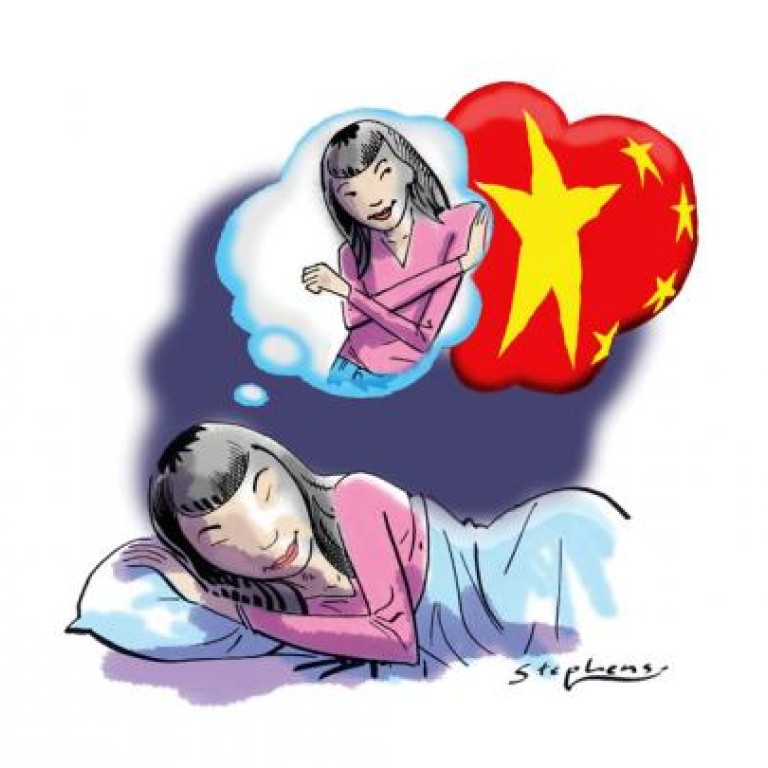
The missing Chinese in the Chinese dream
John Gong says while the 'Chinese dream' of national revival is well and good, it must make space for the aspirations of its citizens, and that means fostering a society where all can thrive
Following the conclusion of the 18th national congress of the Communist Party, general secretary Xi Jinping toured the southern city of Shenzhen, reminiscent of Deng Xiaoping's famous southern tour exactly 20 years ago, which ushered in an unprecedented period of growth and prosperity in China's modern history.
During a tour to a museum exhibition there titled "The Road to Revival", Xi first introduced the phrase "Chinese dream". In his speech, Xi defined the Chinese dream as one of "achieving the great revival of the Chinese nation". Xinhua later echoed this with an editorial saying that the method of realising this dream should be fuelled mostly by the reform and opening-up policy.
On hearing this, I thought immediately of the famed American dream. Let's explore a bit what that dream is.
To the Mayflower pilgrims, the American dream started with the voyage to a new world across the sea, where they could escape from religious persecution. This spirit is formalised in the Declaration of Independence about 1-1/2 centuries later, which proclaims all men to be equal and endowed with certain inalienable rights, including life, liberty and the pursuit of happiness.
Historian James Truslow Adams popularised the phrase "American dream" in his 1931 book, . He wrote: "It is not a dream of motor cars and high wages merely, but a dream of social order in which each man and each woman shall be able to attain to the fullest stature of which they are innately capable, and be recognised by others for what they are, regardless of the fortuitous circumstances of birth or position."
Martin Luther King Jnr wove it into the civil rights movement in his celebrated "I have a dream" speech, in which he famously said: "I have a dream that my four little children will one day live in a nation where they will not be judged by the colour of their skin but by the content of their character."
It is clear that the American dream is a very personal matter, in a way that the Chinese dream, as it is now defined, is not. It should be. The Chinese dream should be fundamentally about you and me, we ordinary citizens, working hard to pursue a better life with the belief that if we do work hard, we can all make it.
As it is now being discussed, the Chinese dream offers only a vision of the world's longest surviving civilisation taking its place in the world, in pursuit of some version of Chinese exceptionalism that will steer country and people to fulfil their collective destiny.
I would argue that my mostly individualistic interpretation of the Chinese dream in the context of the American dream does not conflict at all with Xi's notion of a national revival. After all, it is the selfish individual pursuit of wealth and happiness that creates national wealth entailing a strong national power, or national revival in Xi's words, if one believes in Adam Smith's notion of a free market. After all, this is the path China has chosen with its the reform and opening-up policy.
To meet that goal, much will be expected of this new administration. At present, China's development of a market mechanism is not commensurate with its economic performance. The rule of law, in fact, experienced a setback, not least in Chongqing under the rule of Bo Xilai and Wang Lijun. Some of the information disclosed so far from that era is appalling, to say the least.
At present, the cancerous corruption within the ruling party is eating away its organs, and its credibility with the people. The civil service is becoming a passport to rent seeking, as oodles of college graduates stampede into it. At present, our children are not judged by the content of their character but by the ranking of their dads. At present, social mobility is becoming increasingly difficult.
Now the wealthy and the highly educated are emigrating in droves in search of a more democratic society and a cleaner environment.
In their book , economists Daron Acemoglu and James Robinson argued convincingly how Argentina, once among the richest countries in the world about a hundred years ago, lost its growth horsepower because the elite stuck with an extractive political system. People with talent and capital left for other destinations. In this light, the recent report by the Centre for China and Globalisation and Beijing Institute of Technology's law school sends an alarming signal. More than 150,000 mainlanders obtained overseas citizenship last year, making China the world's biggest source of immigrants.
From the government's perspective, this Chinese dream should not be about gross domestic product figures or glistening office buildings in Beijing's central business district or the Pudong district in Shanghai. Nor should the government ask its citizens to collectively work towards that goal. The government's job is to transform itself and provide a better and fairer environment in which individuals can thrive through their pursuit of happiness.
The government's job is to rigorously enforce the rule of law, in which fair competition reigns and reputable companies prevail. The government's job is to open the political system and move towards what Acemoglu and Robinson call an inclusive society.
To borrow the words of former US president John F. Kennedy, with a slight twist: ask not what your people can do for you; ask what you can do for your people.

